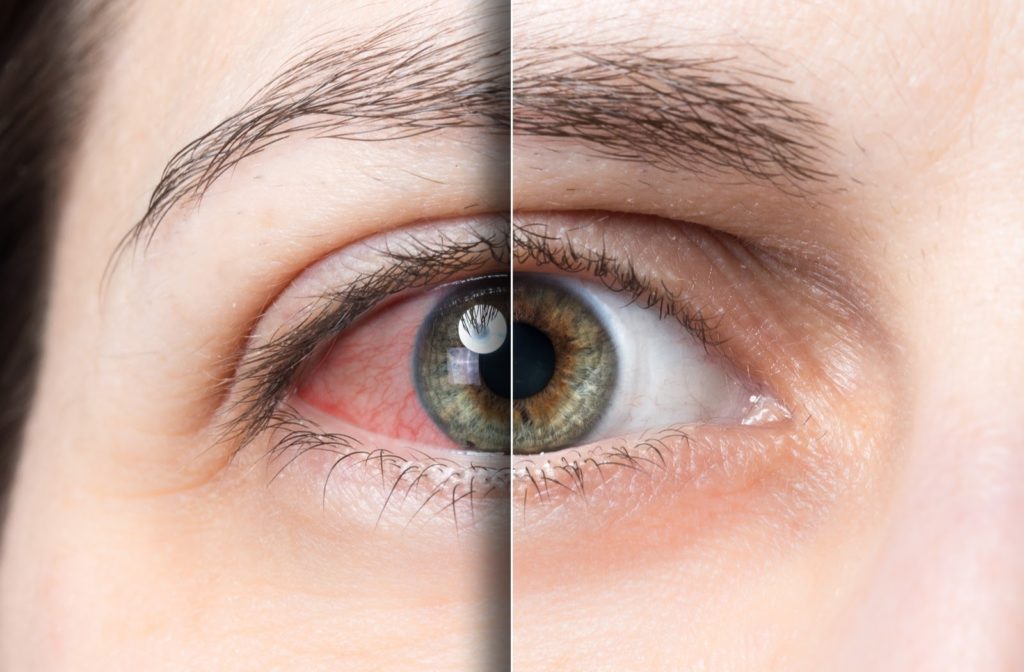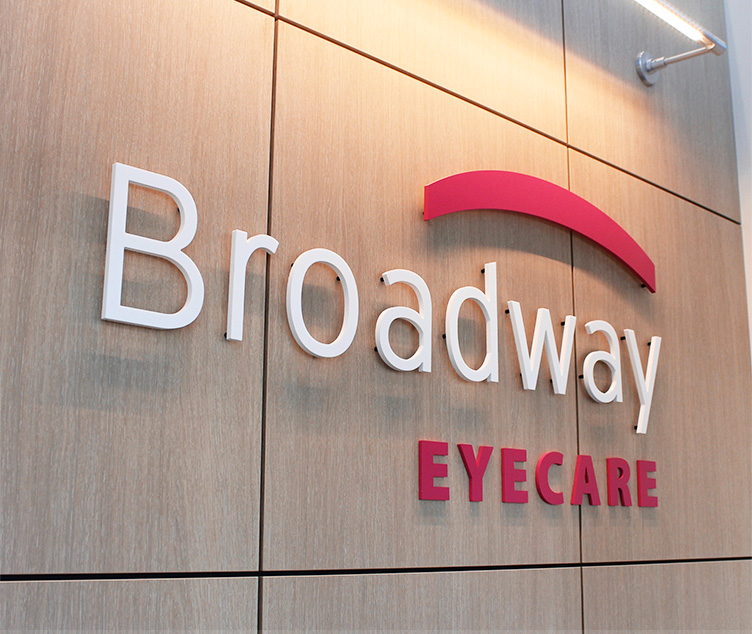If you’ve ever experienced dry eyes, you know just how irritating they can be. Not only do dry eyes feel uncomfortable, but it can also affect your vision and make it difficult to complete daily tasks.
But what causes your eyes to become dry? And how can you stop it from happening in the future? Keep reading to learn everything you need to know about dry eye disease, from symptoms, to causes, to treatment options.
Dry Eye Disease Explained
Dry eye disease is a common eye condition that happens when there is an issue with any one of the three components of your tears. These three components include:
- An oil layer
- A water (aqueous) layer
- A mucous layer
Each of the tear layers serves a critical role in your eye health.
There Are 2 Types of Dry Eye Disease
There are two types of dry eye disease, depending on which tear component is causing the condition. The two types are:
Evaporative Dry Eye (EDE)
EDE is the most common type of dry eye disease. This type of dry eye occurs when there is a lack of the oil layer in your tears, causing your tears to evaporate too quickly. Unfortunately, this can leave your eyes feeling dry and uncomfortable.
Aqueous Tear Deficiency (ATD)
If your eyes aren’t producing enough tears, it can lead to ATD. If you suffer from ATD-related dry eye, your eyes don’t have enough of a water layer to function properly. This can lead to irritating symptoms and even vision loss in severe cases. Dry eye can also be Mixed Mechanism, which is a combination of Evaporative Dry Eye and Aqueous Tear Deficiency.
Dry Eye Symptoms
Dry eye symptoms vary from person to personl, but you can usually expect the following symptoms if you’re suffering from dry eye disease:
- A burning or scratchy sensation in your eyes
- Stringy mucous in or around your eyes
- Irritated or overly-watery eyes
- Sensitivity to light
- Eye redness, blurred vision, or eye fatigue
- A sensation of having something in your eyes
- Difficulty wearing contact lenses
If you are experiencing any of these symptoms, please you should book an appointment and talk to your optometrist about receiving a dry eye disease diagnosis.

Why Are Your Eyes Dry?
It can be frustrating to have dry eye symptoms and not know why it’s happening. Maybe you’ve tried treatments in the past that haven’t worked, or you can’t seem to find a way to prevent your dry eyes from coming back.
Whatever you’re experiencing, it’s essential to understand why your eyes are so dry. Here are the top 6 reasons your eyes may be dry:
Medical Procedures & Medications
Specific medical procedures, such as laser eye surgery, or medications, such as antihistamines, have been linked to dry eyes.
Windy or Dry Environments
Our eyes are sensitive, so even something as simple as being in a windy or dry environment can drastically affect our eye health and the way our tears function.
Seasonal or Chronic Allergies
As if allergies aren’t irritating enough, they can also cause your eyes to become dry and uncomfortable. Unfortunately, antihistamines, which are usually used to manage allergies, can make dry eyes worse.
Long-Term Contact Lens Wear
Dry eye is quite common among individuals who have worn contacts for an extended period. Thankfully, treating dry eye delete or changing to a different type of contact lens can help improve comfort.
Screen Use
Screen use can cause evaporative dry eye. When looking at a screen, people tend to blink less. Without a proper amount of blinking, your tears will evaporate much quicker, leading to dry eye disease. Your optometrist may prescribe blinking exercises to help with this problem.
Dehydration
The aqueous layer in your tears is composed mainly of water. If you’re dehydrated, it can cause your eyes to produce fewer tears or low-quality tears. When this happens, your eyes won’t have the proper lubrication to keep them functioning and comfortable.
Preventing Dry Eyes
To keep your eyes healthy and seeing well, you can do the following to prevent your eyes from drying out:
- Avoid windy or dry environments
- Add moisture to the air using a humidifier
- Wear safety shields or protective eyewear
- Take eye breaks from using digital devices
- Avoid smoking and limit alcohol consumption
- Use artificial tears regularly to keep eyes moist
- Drink at least 8 glasses of water every day
Get the Help You Deserve
The best way to understand your dry eye is by receiving a proper diagnosis. During your regular comprehensive eye exam, discuss your symptoms with your eye doctor. They can use this information, along with your medical history, to find the root cause of your dry eye symptoms.
Once you know the cause of your discomfort, you’ll be better able to manage your dry eye symptoms by effectively treating your dry eyes at the source.
Curious about what Broadway Eyecare dry eye treatment can do for you? Contact us today!









